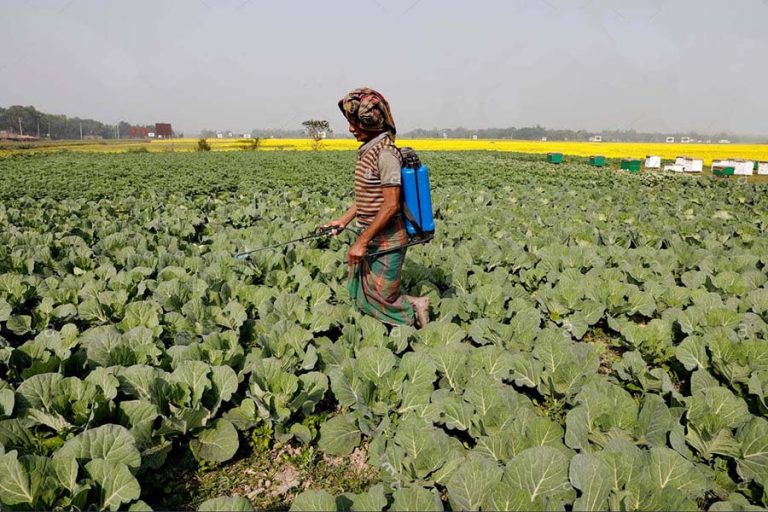Agro Chemical
Agrochemicals are the various chemical products that are used in agriculture. In most cases, the term agrochemical refers to the broad range of pesticide chemicals, including insecticide chemicals, herbicide chemicals, fungicide chemicals, and nematicides chemicals (chemicals used to kill soil worms). The term may also include synthetic fertilizers, hormones, and other chemical growth agents, as well as concentrated stores of raw animal manure.
Typically, agrochemicals are toxic and when stored in bulk storage systems may pose significant environmental risks, particularly in the event of accidental spills. As a result, in many countries, the use of agrochemicals has become highly regulated and government-issued permits for purchase and use of approved agrichemicals may be required.

Agrochemicals are widely used in agriculture to manage pests and phytopathogens. Hence, it is very pertinent to study the fate and behavior of applied agrochemicals in soil. The important factors that affect the persistence of such agrochemicals such as clay type, clay content, SOM, and pH of the system are described in this chapter along with the mechanisms of retention in soil. Long-term persistence of agrochemicals is harmful for succeeding crops grown in the soil as they leave residues that may enter into the animal and human food chain. Many of the agro-pesticides exist in the soil environment as a mixture. Currently our knowledge about the fate and behavior of agro-pesticide mixtures in the ecosystem is inadequate. Therefore, research is needed in the future to address the issue of agro-pesticide mixtures in the soil–plant systems under various agro-climatic conditions.
WIN Agro chemicals belongs to :
- – Fungicides
- – Herbicides / Weedicides
- – Plant Growth Regulators (PGR)
- – Micro Nutrients & Fertilizers